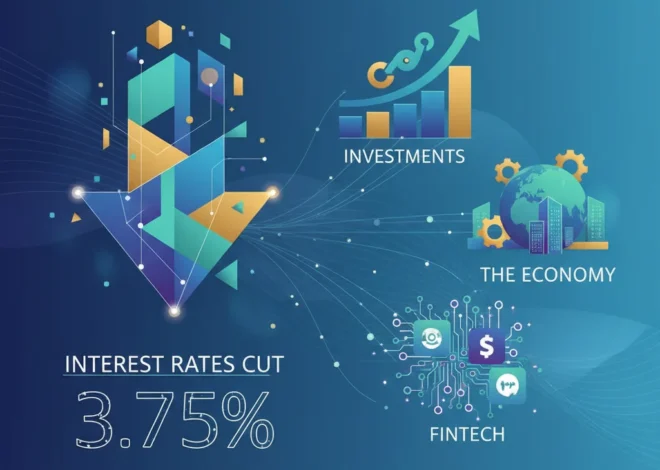
Beyond the Ballot Box: How Voter Sentiments Are Reshaping the Global Economy and Your Investment Strategy
The Unseen Data Point: Why Political Sentiment is a Critical Metric for Modern Investors
In the world of finance and investing, we are obsessed with data. We track quarterly earnings, inflation rates, central bank announcements, and every fluctuation in the stock market. Yet, one of the most powerful forces shaping our economic future often flies under the radar of traditional analysis: public sentiment. A recent, eye-opening survey has thrown this into sharp relief, revealing political currents that have profound implications for the global economy, international trade, and the very structure of our financial markets.
A study highlighted by the Financial Times has uncovered a startling transatlantic divergence in political attitudes. It found that right-wing voters in the UK hold more staunchly anti-immigrant views than their counterparts who support Donald Trump in the US. While this might seem like a topic for political science classrooms, for astute investors, business leaders, and finance professionals, it’s a critical signal. These sentiments are not just opinions; they are the precursors to policy shifts, regulatory changes, and economic transformations that can create both significant risk and unprecedented opportunity.
This article will dissect these findings, moving beyond the headlines to explore the tangible economic consequences. We will examine how shifts in public opinion on issues like immigration can trigger a domino effect, impacting everything from labor markets and inflation to the future of global banking and the adoption of financial technology.
A Tale of Two Electorates: Deconstructing the Data
The research, conducted as part of a comparative politics project, presented a nuanced picture of the right-leaning electorate on both sides of the Atlantic. The survey delved into attitudes on whether immigration was a net positive or negative for the country. The results challenge common assumptions about American political discourse being the most polarized.
Here’s a breakdown of the key findings, illustrating the stark contrast in sentiment:
| Voter Group | Percentage Viewing Immigration as a Net Negative | Key Distinctions |
|---|---|---|
| UK Conservative Voters (2019) | Approximately 69% (source) | Represents a broad segment of the mainstream UK right, indicating deeply entrenched skepticism towards immigration’s economic and cultural impact. |
| US Trump Supporters | Approximately 64% (source) | While a significant majority, this figure is notably lower than their UK counterparts, suggesting a slightly less monolithic view on the issue within this base. |
This data is more than just a political curiosity. It demonstrates that the forces that led to Brexit in the UK may be even more deeply rooted in the electorate’s psyche than the populist wave that brought Donald Trump to power in the US. For anyone involved in international finance or cross-border business, understanding these nuances is crucial for forecasting policy direction and assessing political risk.
Beyond the Rainbow: A Financial Post-Mortem of Manchester Pride's Collapse
The Economic Ripple Effect: From Public Opinion to Portfolio Performance
How does a voter’s opinion in a survey translate into a tangible impact on the stock market or a company’s bottom line? The pathway is a clear, albeit complex, chain of events:
- Sentiment Drives Votes: Public opinion, especially on hot-button issues, is the primary driver of election outcomes.
- Votes Shape Governments: Electoral victories empower political parties to implement their platforms.
- Governments Create Policy: These platforms translate into concrete policies on immigration, trade, and regulation.
- Policy Alters the Economy: New policies directly impact labor supply, consumer demand, international trade relations, and corporate costs.
The most potent case study is Brexit. The underlying sentiments captured in this survey were the very fuel for the “Leave” campaign. The result was a fundamental reordering of the UK’s relationship with its largest trading partner. The consequences included supply chain disruptions, new regulatory hurdles, a significant drop in the value of the pound, and labor shortages in key sectors like logistics and hospitality. For investors, this wasn’t an abstract political event; it was a multi-trillion-dollar market shift that required immediate strategic adjustments.
Understanding this chain reaction is fundamental to modern investing. Political risk is no longer a niche concern for emerging market specialists; it is a core consideration for anyone invested in developed economies like the UK and US.
Finance in the Crosshairs: Banking, Fintech, and the New Nationalism
The financial sector is uniquely exposed to the downstream effects of nationalist and anti-globalist sentiment. The very essence of modern finance is built on the free movement of capital, talent, and ideas across borders. When political winds shift towards protectionism, the entire ecosystem is challenged.
The Impact on Traditional Banking
For the banking sector, the implications are multifaceted. Stricter immigration policies can lead to labor shortages, which in turn can drive up wage inflation. This puts pressure on central banks to raise interest rates, directly impacting lending margins, loan defaults, and the overall health of the credit market. Furthermore, a move away from international cooperation can complicate cross-border transactions and regulatory compliance, increasing operational costs for multinational banks.
A New Economic Dawn? Unpacking the US-China Trade Deal and Its Impact on Global Markets
A Paradox for Financial Technology
The world of fintech and blockchain exists in a fascinating paradox with these political trends. On one hand, financial technology is inherently globalist. A blockchain network doesn’t recognize national borders, and fintech platforms often thrive by serving a global user base. A political environment that champions national interests and erects digital or regulatory barriers could stifle innovation and hinder the growth of these globally-minded companies.
On the other hand, some aspects of this technology could see increased relevance. For instance, in a world with more friction in traditional cross-border payments, decentralized solutions for remittances via blockchain could become more attractive. The tension is palpable: will the borderless promise of fintech be constrained by the bordered reality of the new political landscape? This is a key question that tech investors and innovators must grapple with.
The Broader Horizon: A Global Shift in Economics and Geopolitics
The UK/US comparison is not an isolated phenomenon. Similar undercurrents of economic nationalism and skepticism towards globalization are visible across the globe. From Europe to Asia, political movements are gaining traction by promising to prioritize local workers and industries, often at the expense of international trade agreements and alliances.
This represents a potential paradigm shift in post-war economics. The prevailing wisdom for decades has been that deeper economic integration leads to greater prosperity for all. This consensus is now being actively challenged. For businesses and investors, this means re-evaluating supply chains, reconsidering market entry strategies, and placing a higher premium on geopolitical analysis. The assumption of ever-increasing globalization is no longer a safe bet; the future is likely to be a more fragmented and multi-polar economic environment.
The New Global Trade Playbook: Why Regional Deals Are Reshaping Markets and Investments
Conclusion: The Investor’s New Imperative
The data revealing UK right-wing voters’ strong anti-immigration stance is more than a political headline; it’s a vital piece of market intelligence. It underscores a powerful truth for the 21st-century investor: socio-political trends are now inseparable from economic forecasting and financial strategy. The sentiment of a voter in a small town can have a more profound and lasting impact on your portfolio than a hundred-point swing in the Dow Jones.
To navigate this complex landscape, business leaders and finance professionals must expand their analytical toolkit. It’s no longer enough to read balance sheets and central bank minutes. We must also learn to read the mood of the electorate, understand the historical context driving their concerns, and anticipate the policy shifts that will inevitably follow. In an era where sentiment can move markets as swiftly as earnings reports, the most successful investors will be those who understand the powerful connection between the ballot box and the balance sheet.


